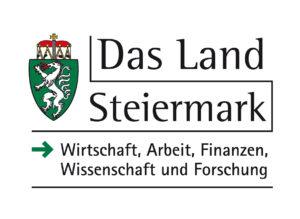Electricity systems in Europe will be expanded and transformed in the coming decades to ensure that they are both stable and climate-neutral. Complex optimization models are being used to make the right decisions on the road to decarbonization.
But there is a catch: models of realistic electricity systems are usually so large that even supercomputers reach their performance limits. So a lot of input data (such as time series of consumption or capacity factors of renewable energy sources) are aggregated, which makes the models numerically solvable but less accurate.
Sonja Wogrin, head of the Institute of Electricity Economics and Energy Innovation at Graz University of Technology, wants to change this with her five-year project “Optimization and data aggregation for net-zero power systems”, for which she has obtained a Starting Grant of almost 1.5 million euros from the European Research Council (ERC).
Existing aggregation methods leave much potential unused
When building optimization models, traditional data aggregation usually focuses exclusively on the data itself, without taking into account the specifics of the optimization model in question. This leaves a lot of aggregation potential unused, which affects the computation time and the quality of the optimization results. As a result, investment decisions on power plant technologies, locations or grid expansion are suboptimal, so the transformation of the energy system becomes more expensive. In her project, Wogrin aims to improve data aggregation and develop methods that allow researchers to create more informative models with the same computing power, benefiting society immensely. “Globally, the size of the power generation market in 2022 was estimated at $1.8 trillion,” Wogrin explains. “Even if novel aggregation methods result in decisions that are only one percent better, the impact is enormous.”
Considering different supply situations
Wogrin’s research approach is not to focus on individual representative periods in which different load situations can coincide. Within these periods, the power supply may at times be guaranteed purely by renewable energy (hydropower, wind, PV), but in between thermal power plants may have to be switched on, or there may even be phases with insufficient supply overall. If these periods are considered on average, phases with an undersupply can be completely omitted from the data, which is critical for reliable planning. Therefore, Sonja Wogrin wants to use her new method to group together phases with similar supply situations to obtain compressed yet differentiated model data.
“If we want to properly plan the decarbonized energy system of the future, there is no way around reliable modeling. After all, it’s a matter of making smart investment decisions. These models and methods should then be available to all,” says Wogrin. “I’m convinced that this new way of aggregating data is not only relevant to my field of research, but provides fundamental tools that can help scientists* around the world.”
Up to five new positions for researchers
The funding will enable Wogrin to assemble a team of probably three doctoral students and one or two postdocs. The positions are expected to be advertised and filled this year. The ERC awards Starting Grants to researchers who conduct groundbreaking research early in their careers and establish their own independent research group. Sonja Wogrin’s Starting Grant is the eighth Starting Grant awarded to researchers at TU Graz and the first in the Department of Electrical Engineering at TU Graz. In addition, three Consolidator Grants and one Proof of Concept Grant have been obtained in the past.
(Original text published on September 5, 2023 at https://www.tugraz.at/home )









